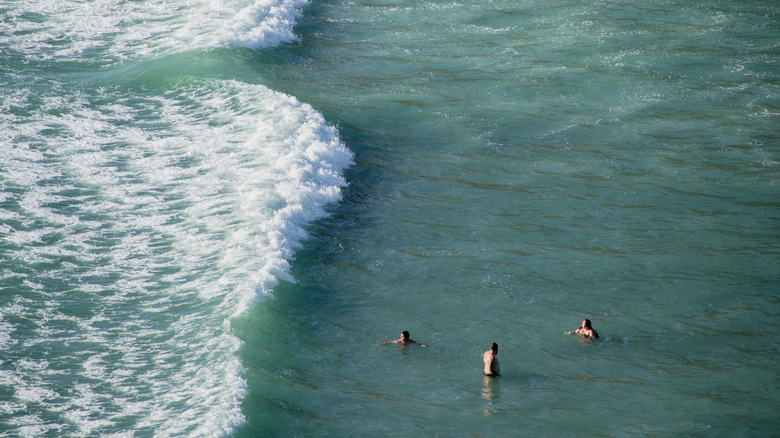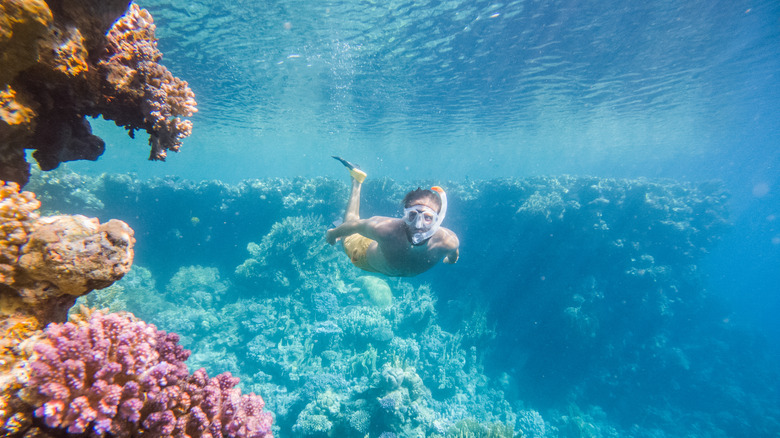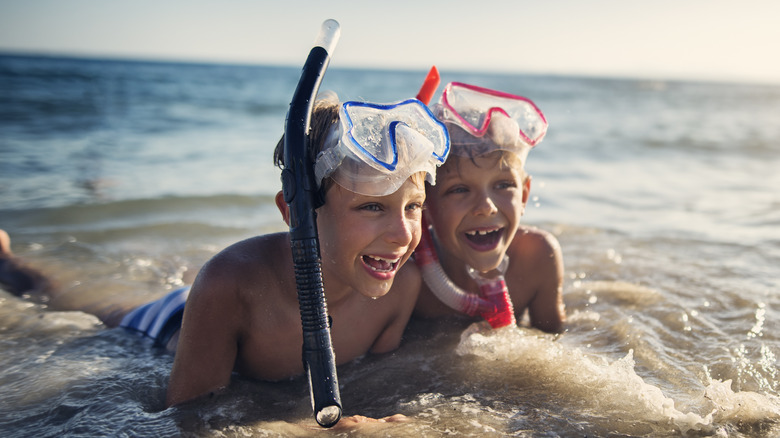Travel Guides Outdoor Adventures Water Adventures
Nicole Findlay
Snorkeling lets us peek into the wonders of the underwater world. And while the best snorkeling spots showcase colorful coral and fish of all shapes and sizes, snorkeling in the wrong location can be dangerous. So how does one know which snorkel sites to avoid and what parts of the ocean to jump right in? As a general rule, small fish congregate near reefs, seeking protection from predators and eating algae off the corals. For snorkelers seeking reefs on vacation who aren’t familiar with the destination, ask an expert. Locals, especially those that work in dive shops, will likely know all the safe and popular snorkeling spots and maybe a few of the best that fly under the radar. Some places, including national parks in the U.S., even have underwater snorkeling trails full of mysterious marine life just waiting to be explored.
Equally important as knowing the best safe places to spot marine wildlife, it’s vital to understand basic precautions while doing so. Snorkeling is a fun and exciting adventure, but even the best snorkeling beaches come with a few risks. Vacationers should know their physical limitations, never snorkel alone, be aware of currents, and be cautious around boats and other water sports.
Beware of strong ocean currents

Emagnetic/Shutterstock
Ocean currents can be strong and dangerous. According to a Snorkel Safety Study presented to the Hawaiian Tourism Authority by the Hawaiian Lifeguard Association, “Snorkeling is the most common activity associated with visitor drownings.” And strong currents can provide dangerous swimming conditions, even for experienced swimmers. Captain Pat Green, owner of Panama City Diving, advises checking ocean currents before entering the water. “You should check whether the water is flowing in a specific direction. Noting the flow will give you a rough idea on how the currents are moving.” For vacationers still unsure of water conditions, pay attention to any warning signs on the beach and ask a local expert.
If you accidentally find yourself caught in an ocean current, stay calm and don’t try to fight it. The National Oceanic and Atmospheric Administration explains, “If you’re a good swimmer, swim parallel to shore until you’ve cleared the pull of the rip current. Swim with the waves, allowing them to push you to shore.” It’s also a good idea to invest in a pair of fins. While they may not be the most flattering footwear out of the water, fins improve speed in the water, helping swimmers escape potential trouble.
Snorkel with caution near watercraft

Mystockimages/Getty Images
Snorkeling near boats or areas where people engage in water sports such as jet skiing or windsurfing increases the likelihood of accidents. According to the Divers Alert Network, “Being struck by watercraft is not uncommon for snorkelers or swimmers in high-traffic areas. Snorkelers should stay within visibly marked protected areas and pay attention to the boat traffic around them.”
The best bet, especially for new snorkelers, is to stay close to land. Also, bring along a friend, family member, or better yet — a group. Snorkeling with others in the open water is more fun, but also, if any snorkeling problems do occur, there will be plenty of people to lend a helping hand. Keep tabs on others and don’t stray too far away. Exploring amazing snorkeling destinations around the world is a wonderful way to spend time on vacation. And snorkeling safely and knowing which areas of the ocean to avoid will ensure a better underwater adventure!

